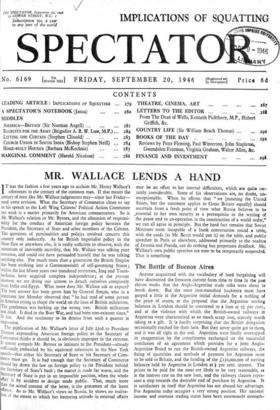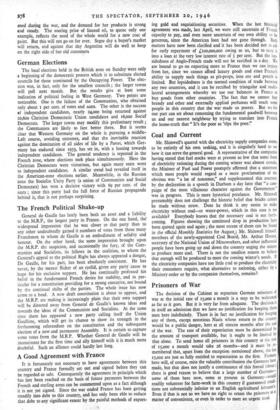The Battle of Buenos Aires
Anyone acquainted with the vocabulary of hard bargaining will have discounted the forecasts current from time to time in the past eleven weeks that the Anglo-Argentine trade talks were about to break down. But the most iron-mouthed hucksters must have gasped a little at the Argentine initial demands for a trebling of the price of steers, at the proposal that the Argentine sterling balances in London should be converted to a loan at 2} per cent., and at the violence with which the British-owned railways in Argentina were characterised as so much scrap iron, scarcely worth taking as a gift. It is hardly surprising that the British delegation occasionally reached for their hats. But they never quite got to them, and it was all right in the end. Asperities were finally overtopped in exaggeration by the compliments exchanged on the successful conclusion of an agreement which provides for a joint Anglo- Argentine Board to run the British-owned Argentine railways, the fixing of quantities and methods of payment for Argentine meat to be sold to Britain, and the funding of the L130,000,000 of sterling balances held by Argentina in London at per cent. interest. The prices to be paid for the meat are likely to be very reasonable, as is the interest rate on the new loan, and the railways clauses repre- sent a step towards the desirable end of purchase by Argentina. It is satisfactory in itself that Argentina has not abused her advantage. For Argentina today occupies a very strong position. Her national income and overseas trading status have been enormously strength-
ened during the war, and the demand for her products is strong and steady. The soaring price of linseed oil, to quote only one example, reflects the need of the whole world for a new coat of paint. But this will not go on for ever. Sotne day a buyer's market will return, and against that day Argentina will do well to keep on the right side of her old customers



























 Previous page
Previous page